Vicky Nanjappa
A report of the National People's Tribunal on the 2008 riots in Kandhamal, Orissa, is out. The report that runs into 197 pages points out that the brutality of the violence falls within the definition of 'torture' under international law, particularly the Rome Statute of the International Criminal Court.
According to the tribunal, headed by Justice A P Shah, communal forces used religious conversions as an issue for political mobilisation and incited horrific forms of violence and discrimination against tribals and Dalit Christians.
The 12-member jury relied on the testimonies of 45 victims, survivors and their representatives.
The report, a copy of which is in rediff.com's possession, states that the targeted violence against tribals and Dalit Christian community in Orissa violates the fundamental right to life, liberty and equality guaranteed by the Constitution, and affirmed by the ICCPR, ICESCR, CERD and other international covenants.
...
'Human rights defenders have been deliberately targeted'
The report further says, 'The 2008 attacks in Kandhamal were widespread, and were executed with substantial planning and preparation. The violence meets all the elements of 'crimes against humanity' as defined in applicable international law. Christians who refused to abandon their faith and convert to Hinduism were brutally killed or injured."
"Burning and destruction of property (residential, official and religious / charitable institutions) was also a predominant form of violence. Human rights defenders have been deliberately targeted for their role in assisting victim-survivors."
"Moveable property, valuable documents and certificates were looted / destroyed to economically impoverish and lower the socio-economic status of the victim-survivors. Evidence of the attacks was systematically and meticulously destroyed in order to scuttle the processes of justice and accountability."
...
'Threats of sexual violence against women and their daughters continue'
The tribunal observed, with deep concern, the silence that prevails in matters of sexual assault, at various levels including documenting, reporting, investigating, charging and prosecuting cases.
The report said, "Threats of sexual violence against women and their daughters continue, heightening women's sense of vulnerability. The attacks on women violate constitutional guarantees of equality and non-discrimination on the ground of sex, and other international standards, including the CEDAW."
"The relief measures undertaken by the government have been marked by gender blindness and did not address women's special needs for privacy, nutrition, medical and psychological support. There is no implementation of government schemes by which widows, single women and women survivors of violence can be restored to a life with dignity."
...
'Children have been forced into forced labour, sexual exploitation and abuse'
With regard to the impact on children, the Tribunal noted: "The impoverishment of the victim-survivor community after the violence has had an adverse impact on the children jeopardising their physical, psychological and intellectual development."
"Many children have witnessed horrific violence to their close family members and suffer from acute trauma with no access to services of socio-psycho support and healing."
"Many children have dropped out of school due to the financial inability of the families to bear the expenses, due to fear or discrimination by the school authority. Children have been forced into the labour force, in hazardous conditions, in order to supplement the family income, and have also been trafficked for the purposes of forced labour, sexual exploitation and abuse."
...
'Socio-economic boycott of the Christian community continues'
On the impact that the riots had on socio-economic and cultural rights of victims, the report said, "The violence against Christians has caused large-scale displacement, leaving the victim-survivors with a sense of rootlessness. The destruction of many churches and prayer halls, and the failure to reconstruct them has deprived the victim-survivors of their right to religious practice."
"The victim-survivor community is unable to freely practise its faith and is thereby reduced to a state of secondary citizenship -- an anathema in a democracy like India with a constitution that guarantees fundamental rights."
"The violence has had an adverse impact on the livelihood and economic well-being of the affected people. Socio-economic boycott of the Christian community continues to be implemented in a variety of ways."
"The provisions of National Rural Employment Guarantee Act too do not benefit them as it is implemented in manner that discriminates against persons on grounds of religion, caste and gender."
...
'State government failed in its responsibility'
Slamming the state administration for 'deliberate dereliction of constitutionally mandated duties', the report said, "The jury members observed, with grave concern, public officials' connivance with communal forces, participation in and support to the violence and a deliberate scuttling of processes of justice through acts of commission and omission."
"The state agencies have blatantly failed to extend much-needed institutional support to victim-survivors and protect them from attacks to their persons and properties, ostracism, socio-economic boycott and subjugation by non-state actors."
"The state government has also failed in its responsibility to prevent the violence in Kandhamal in August 2008."
...
'Victims and witnesses have been threatened and intimidated'
The tribunal lamented that the criminal justice system had been rendered ineffective in protecting victim-survivors and witnesses, providing justice and ensuring accountability for the crimes perpetrated.
"The complicity of the police and their collusion with the perpetrators during the phase of investigation and prosecution, indicate an institutional bias against the targeted Christian tribals and Dalit community."
"Victims and witnesses engaged in the justice process have been threatened and intimidated, as there is no guarantee of safe passage to and from the courts. Guidelines on witness protection, issued by the Supreme Court and various high courts, are not followed by the fast track courts."
"Women and child witnesses face extreme vulnerability. The jury further observes that clear gaps exist in substantive, procedural and evidentiary law to prosecute and punish those responsible for targeted mass violence, and that international jurisprudence in this regard has potential relevance for filling the gaps in Indian criminal law."
...
The tribunal report's recommendations
Some of the recommendation put forth by the tribunal are as follows:
a) Apply NREGA and other livelihood schemes of the state and central government to the affected community, without any discrimination on the basis of caste, religion or gender. Act against those engaging in such discrimination.
b) Implement widow pension schemes; provide government jobs to individuals from families of deceased victims, on compassionate grounds.
c) Ensure that relief camps meet the minimum international standards of health, hygiene and privacy.
d) Incorporate a separate section in the state policy on relief and rehabilitation that conforms to Article 3 of the Child Rights Convention, as the guiding principle for all relief and rehabilitation work.
e) Address educational needs of the children who have suffered displacement as a result of the violence.
f) Address the long-standing problem of landlessness and land alienation of the Dalits and Adivasis in a comprehensive manner through land reform and redistribution.
...
More recommendations
g) Adopt, at the very minimum, the 1984 anti-Sikh and 2002 anti-Muslim riots compensation package to enhance the compensation already announced.
h) Victims of sexual and gender-based violence should be included as a ground eligible for compensation and employment.
i) Recognise the right of the Internally Displaced Persons to return home and create enabling conditions to facilitate such safe return in accordance with the UN Basic Principles and Guidelines on Development-based Evictions and Displacement, 2007 and UN Guiding Principles on Internally Displaced Persons.
j) Facilitate the return and reintegration of the affected families back in their villages of habitual residence, or resettle them in safe and secure alternative places of residence that is near to agro-based or other livelihood possibilities.
k) Protect the right to religious freedom and clarify that this freedom means and includes the right to remain animist, areligious and/or atheist, and make any form of forced conversion or reconversion illegal.
l) Formulate a policy / programme to urgently address the issue of institutional bias against the minority Christian community in Kandhamal and other parts of Orissa, through a combination of perspective-building and stringent action that is intended at upholding the rule of law.
Click on NEXT to go further...

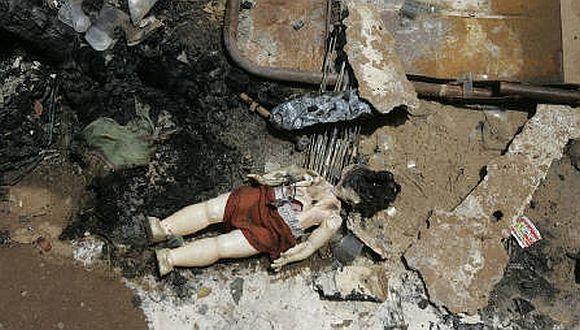
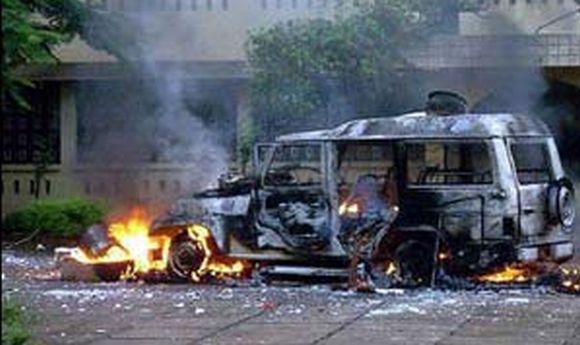
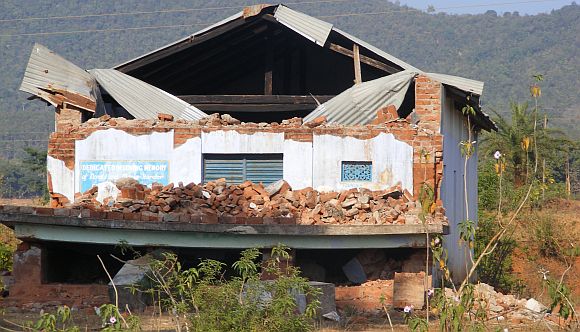


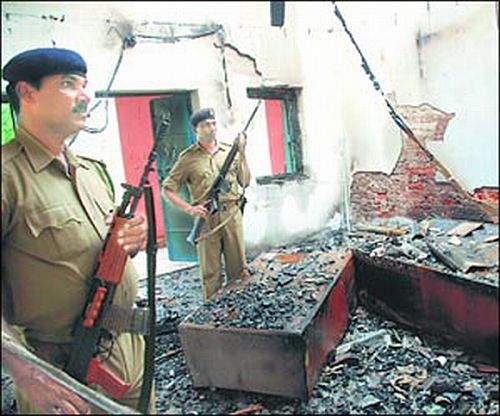

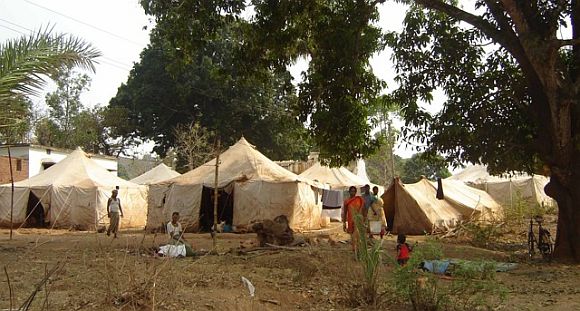
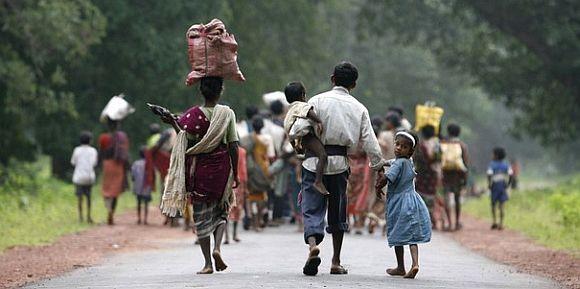
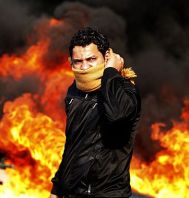
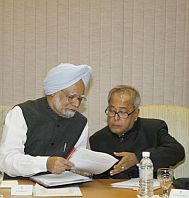

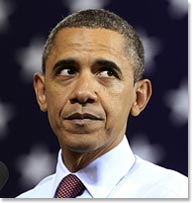


article